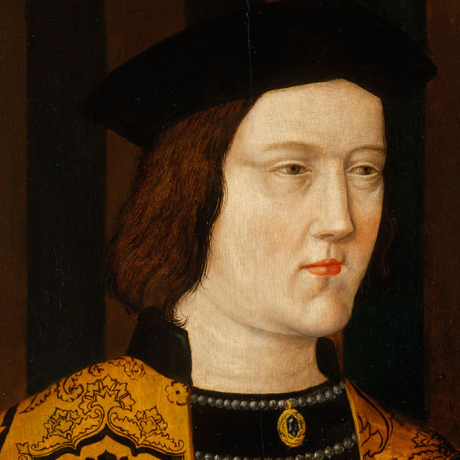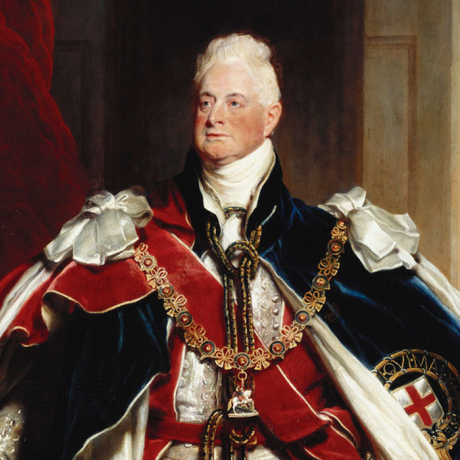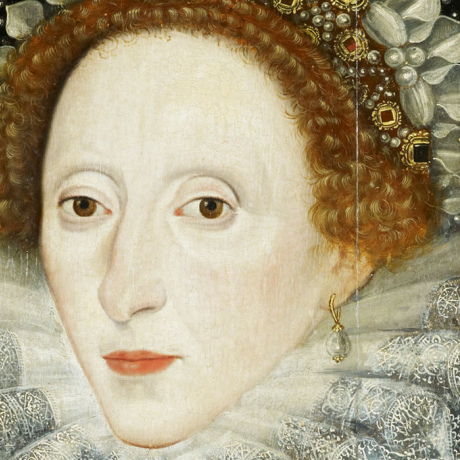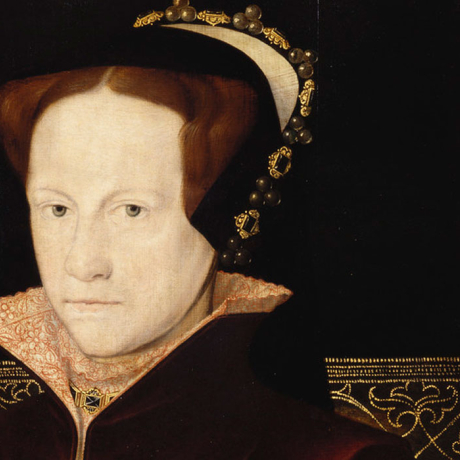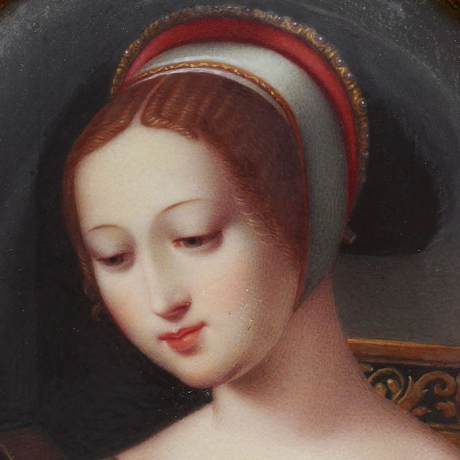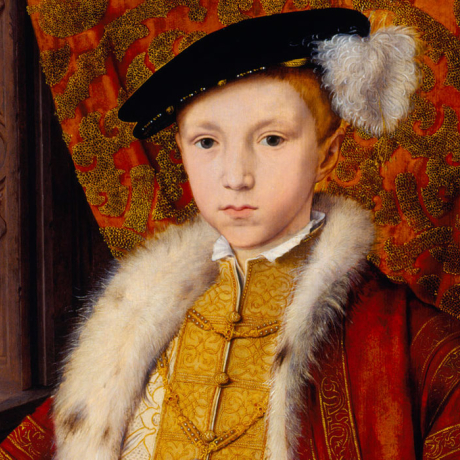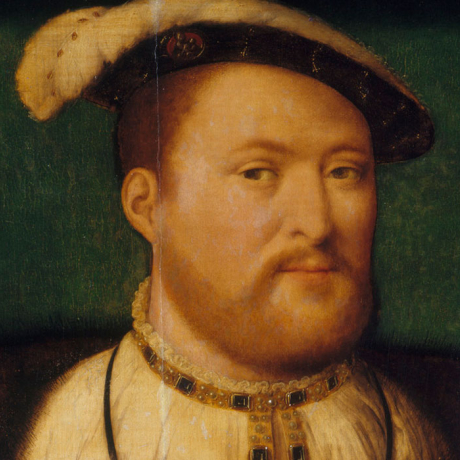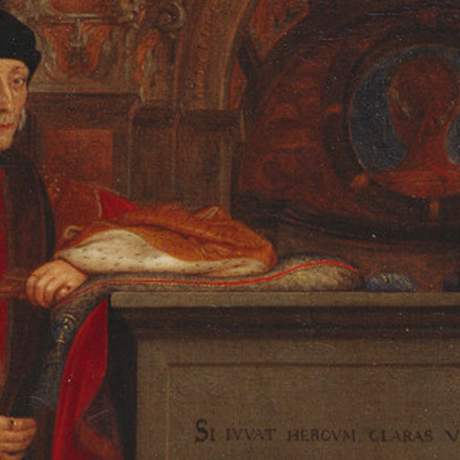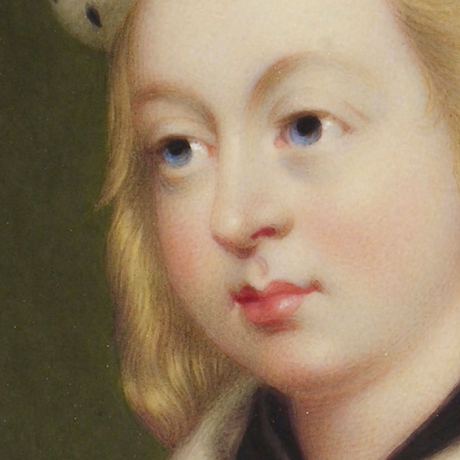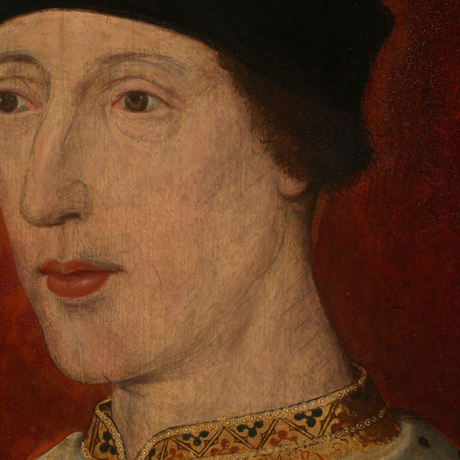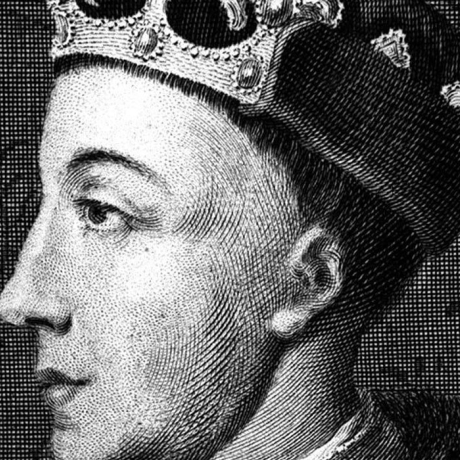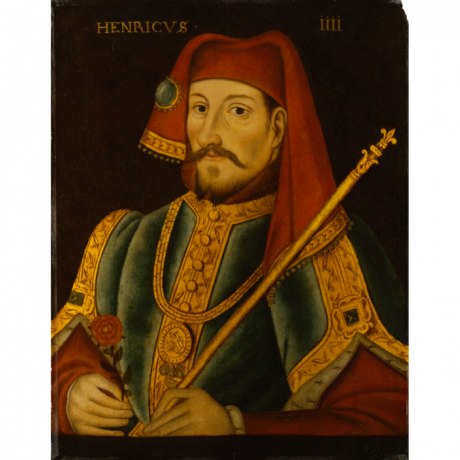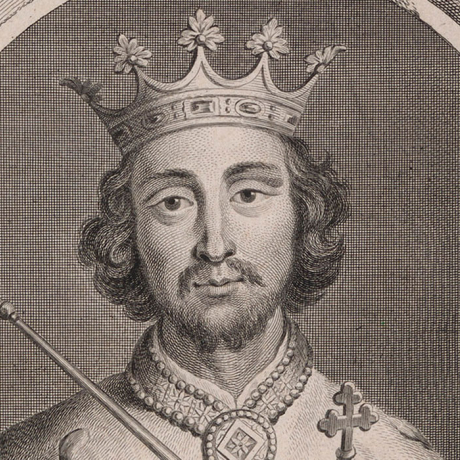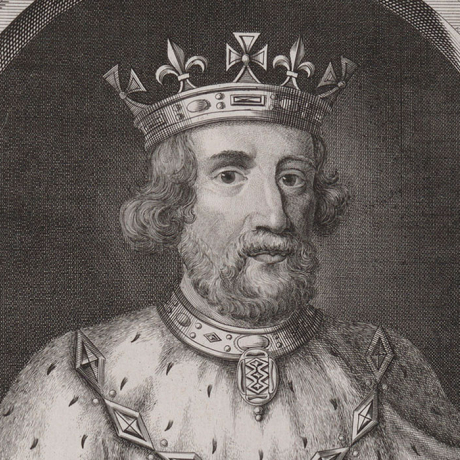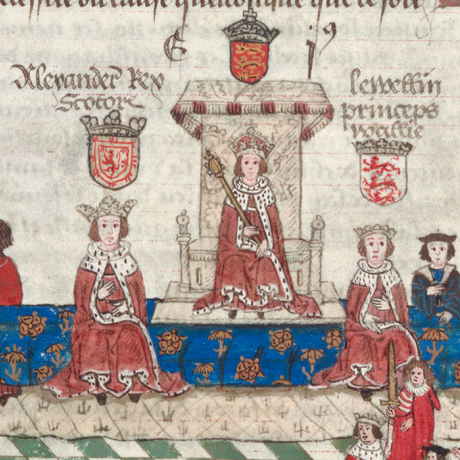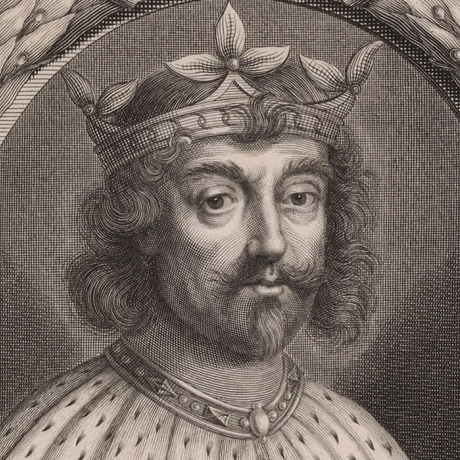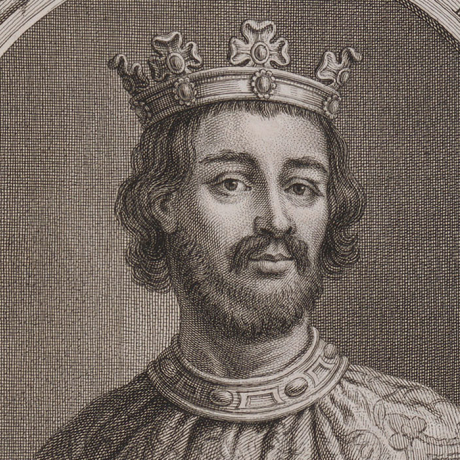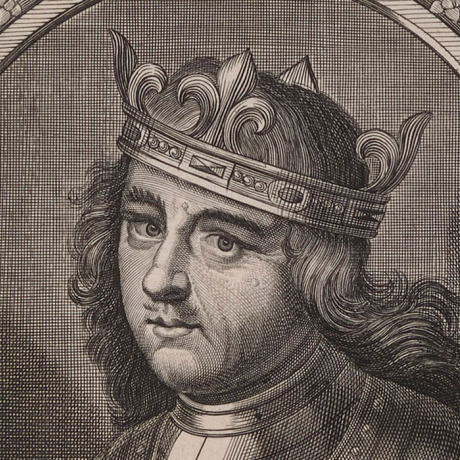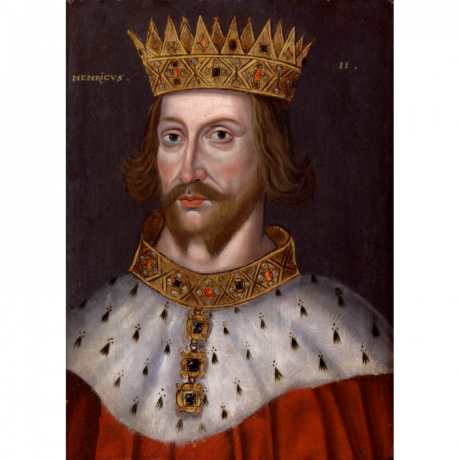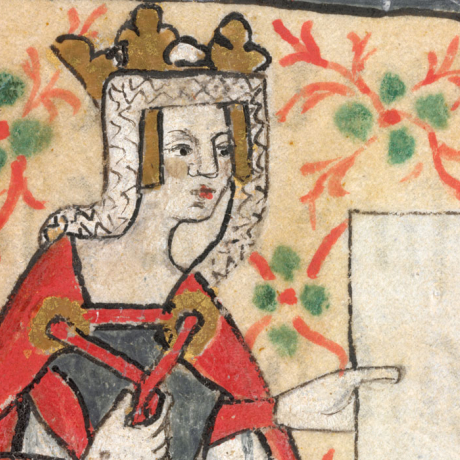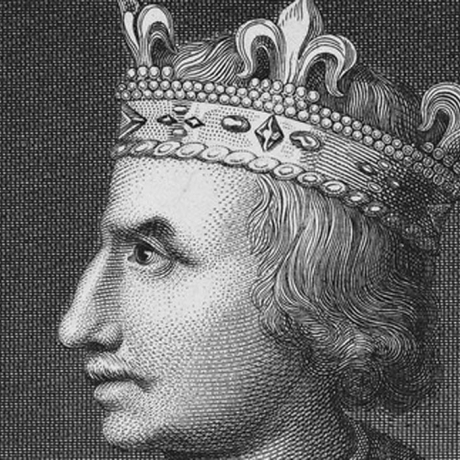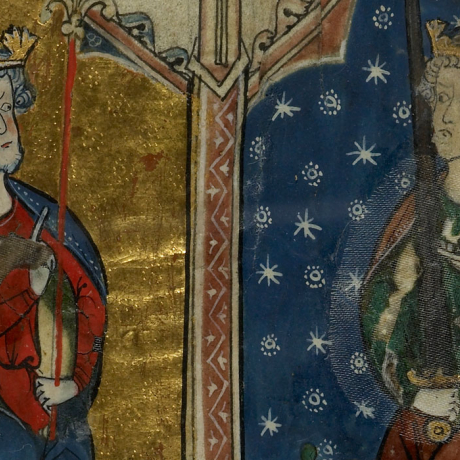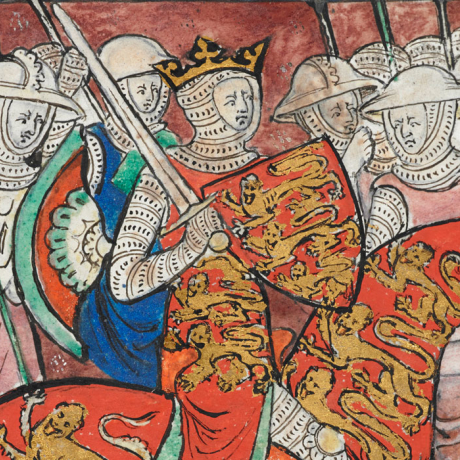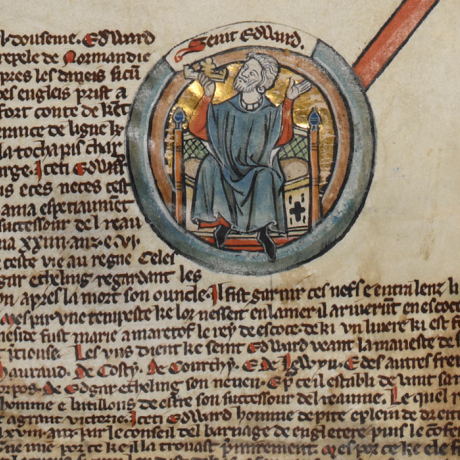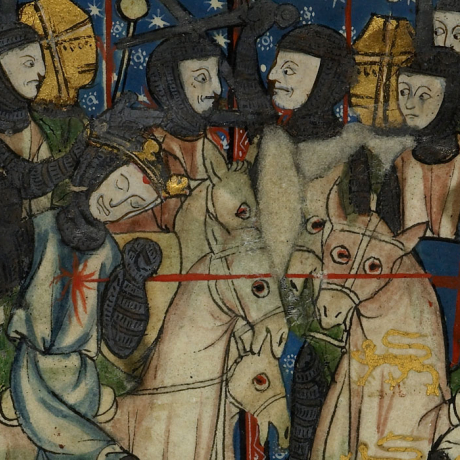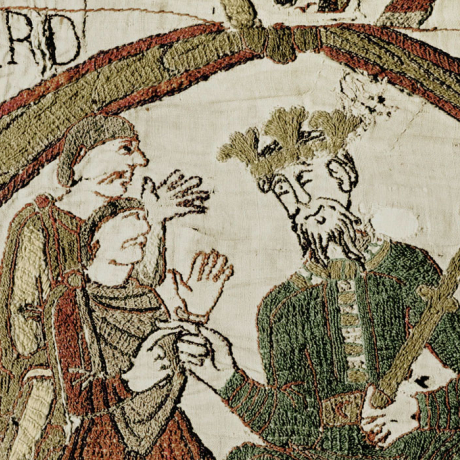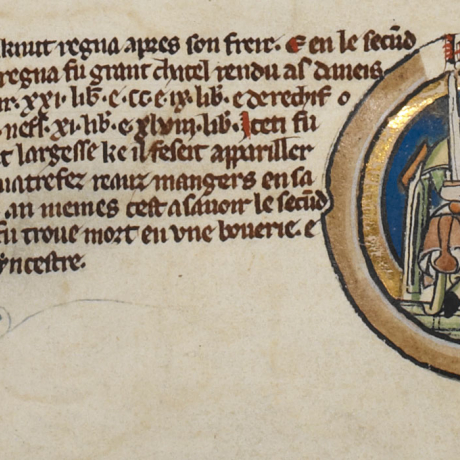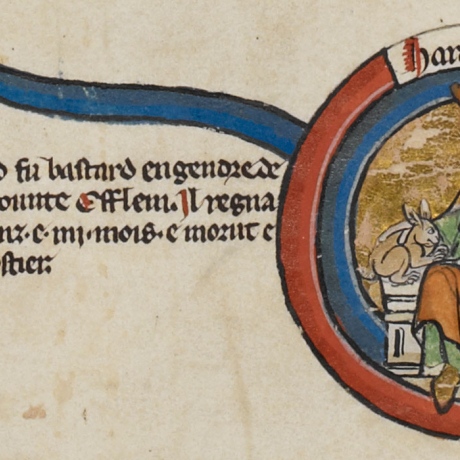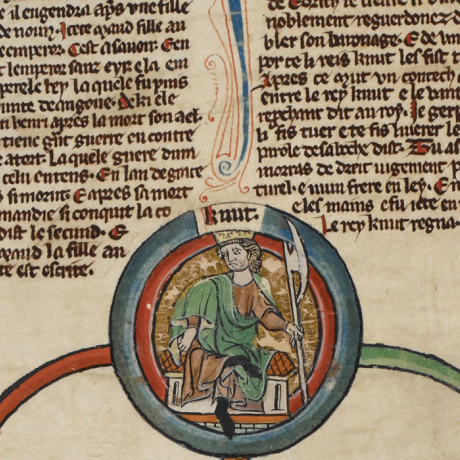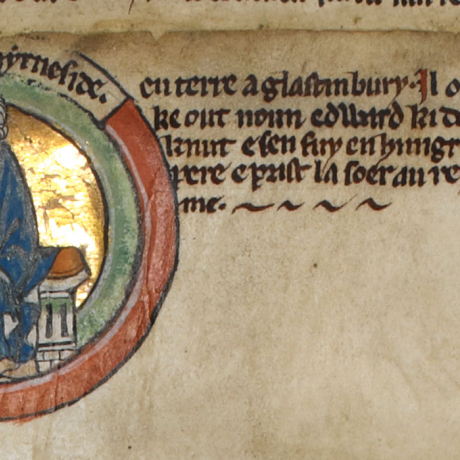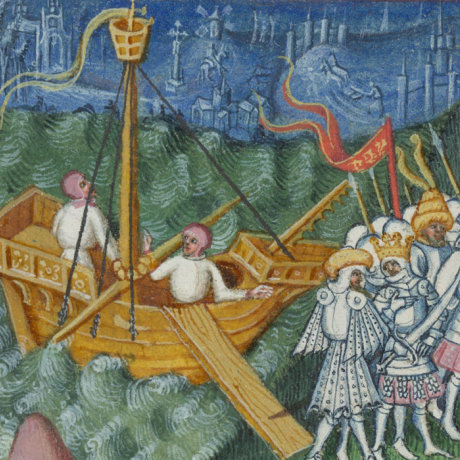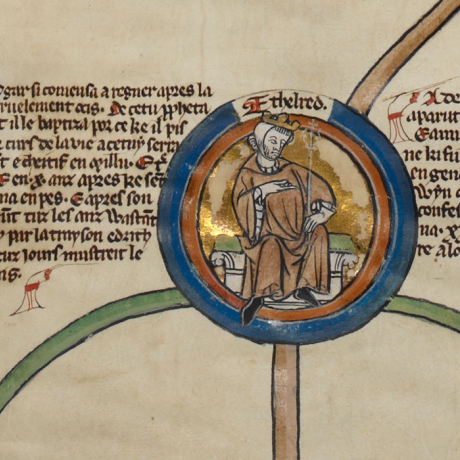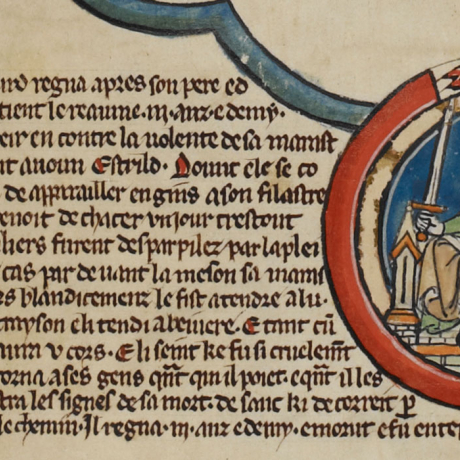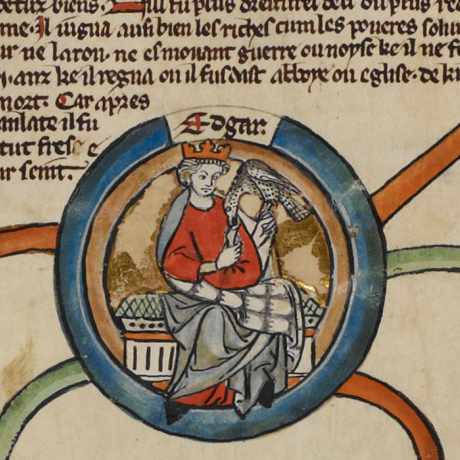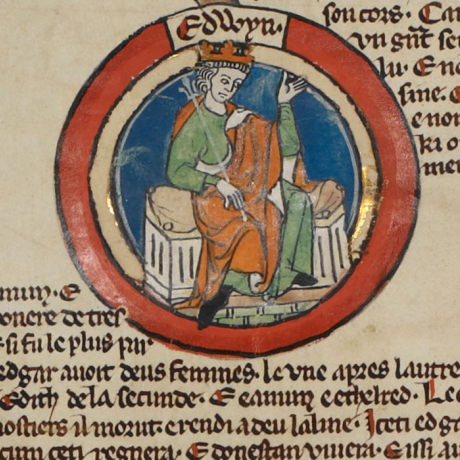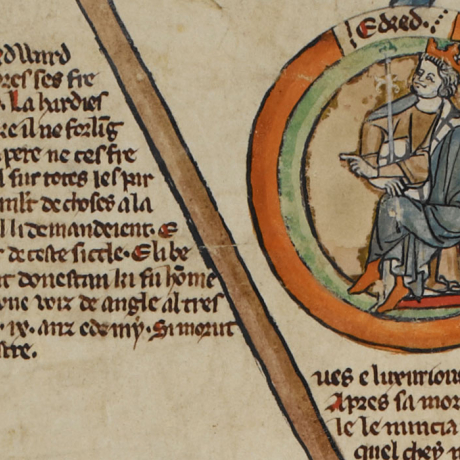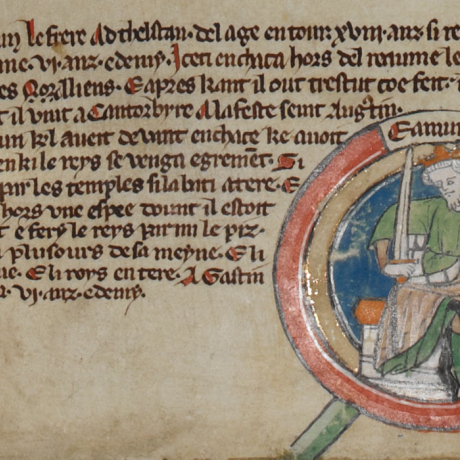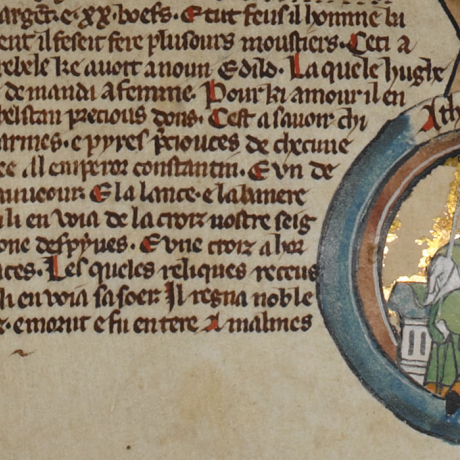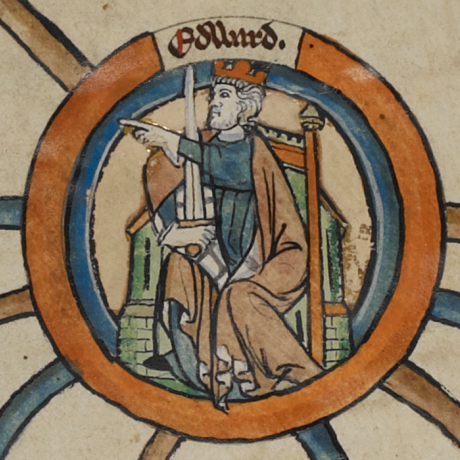Edward, the young Duke of York, claimed the throne after the Battle of Towton in 1461, when Henry VI and his Queen fled to Scotland. In 1470 one of his supporters, the Earl of Warwick, 'the Kingmaker' changed allegiance with the support of Edward's brother, George, Duke of Clarence. Edward and his youngest brother, Richard, Duke of Gloucester, fled to the Low Countries and Henry VI was reinstated as a figurehead for the Lancastrians.
Edward IV regained the throne in 1471, winning decisive battles at Barnet and Tewkesbury, where first Warwick and then Henry's son Edward were killed. Edward also made peace with France; by a shrewd display of force to exert pressure, Edward reached a profitable agreement with Louis XI at Picquigny in 1475.
At home, Edward relied heavily on his own personal control in government, reviving the ancient custom of sitting in person 'on the bench' (i.e. in judgement) to enforce justice. He sacked Lancastrian office-holders and used his financial acumen to introduce tight management of royal revenues to reduce the Crown's debt.
Building closer relations with the merchant community, he encouraged commercial treaties; successfully traded wool on his own account to restore his family's fortunes which enabled the king to 'live of his own'; and paid the costs of the country's administration from the Crown Estates profits, thus freeing him from dependence on subsidies from Parliament.
Edward built St George's Chapel at Windsor (intending it as a mausoleum for the Yorkists, as he was buried there) and a new great hall at Eltham Palace.
Edward collected illuminated manuscripts - his collection survives in the British Library and is the only intact medieval royal collection - and patronised the new invention of printing.
Edward died in 1483, leaving by his marriage to Elizabeth Woodville, a 12-year-old son, Edward, to succeed him.

